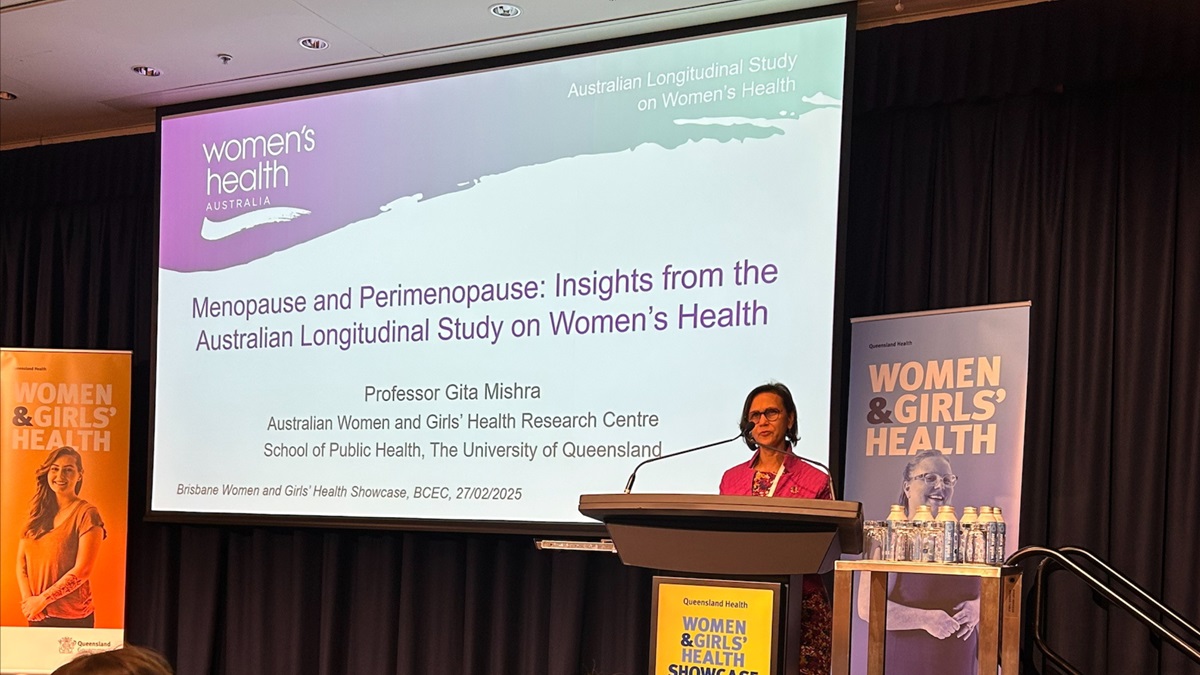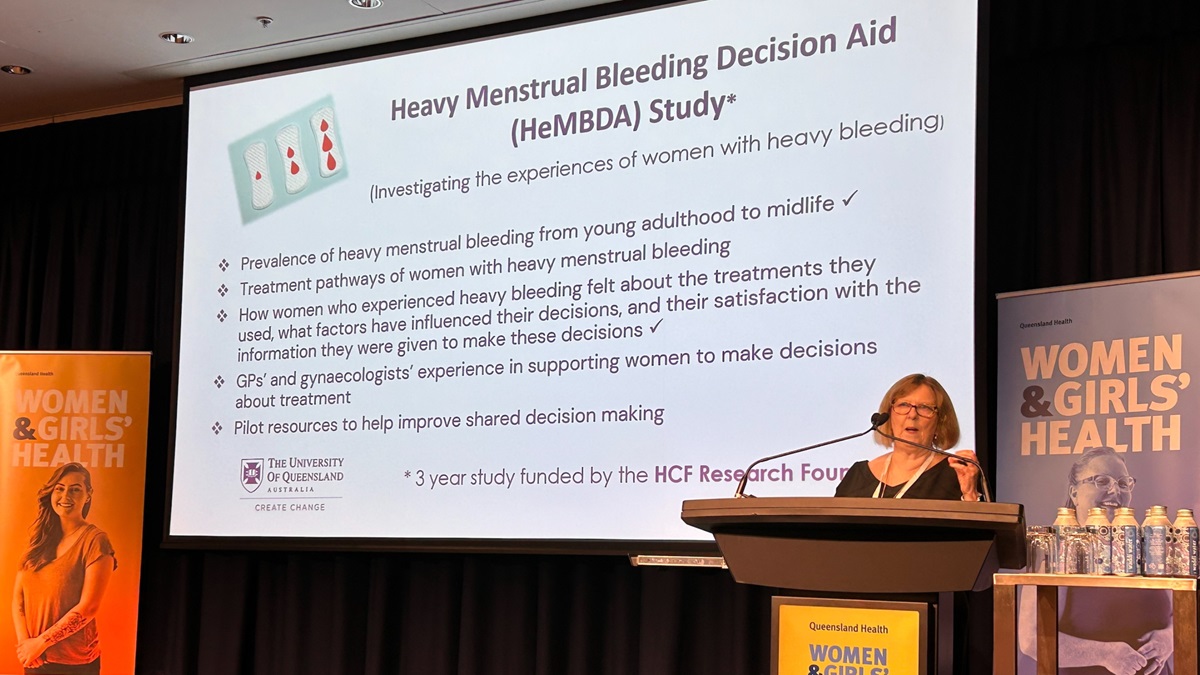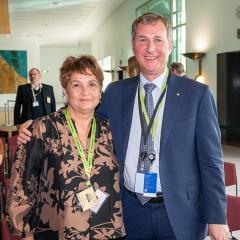The Australian Women and Girls’ Health Research Centre was out in full force at the recent Queensland Women and Girls' Health Showcase event by Queensland Health.
The Centre highlighted their research across two days with a striking stall display for delegates to learn more about the centre’s key research areas including heavy menstrual bleeding and endometriosis and the upcoming MadeHER study, investigating menstrual health and pelvic pain amongst adolescents.
Speaking to almost 300 delegates at the industry-wide healthcare event, centre Director Professor Gita Mishra was invited to present insights from the Australian Longitudinal Study on Women’s Health (ALSWH), on perimenopause and menopause to industry guests.
“The Australian Longitudinal study is the largest, longest-running survey of women’s health, with close to 30 years of longitudinal data,” Professor Mishra said.
Professor Gita Mishra also emphasised the study's contribution to the recent Federal Government Inquiry into issues related to menopause and perimenopause, which utilised key findings from the 1946-51 and 1973-78 cohorts.
“Our data can certainly provide the evidence base to policy developers and help develop better health outcomes for women,” Professor Mishra said.

UQ Associate Professor Nina Lansbury, Minnie King and Olivia Milsom also discussed their research on developing an Indigenous and student-led menstrual health teaching guide, which was also chosen as a case example for good design of menstrual health promotion by another speaker.
Additionally, Professor Jenny Doust spoke about women’s experiences of heavy menstrual bleeding as part of the Centre’s HeMBDA research.

“Heavy menstrual bleeding was reported by large groups of women of reproductive age particularly those with endometriosis, low iron and high body mass index, and the proportion increased with age,” Professor Doust said.
“Women who find their menstrual bleeding heavy and impacting on their lives need better access to treatment.”
The Queensland Women and Girls' Health Showcase was a Queensland Health event, held in Brisbane across two days on Wednesday, 26th February and Thursday, 27th February 2025.



